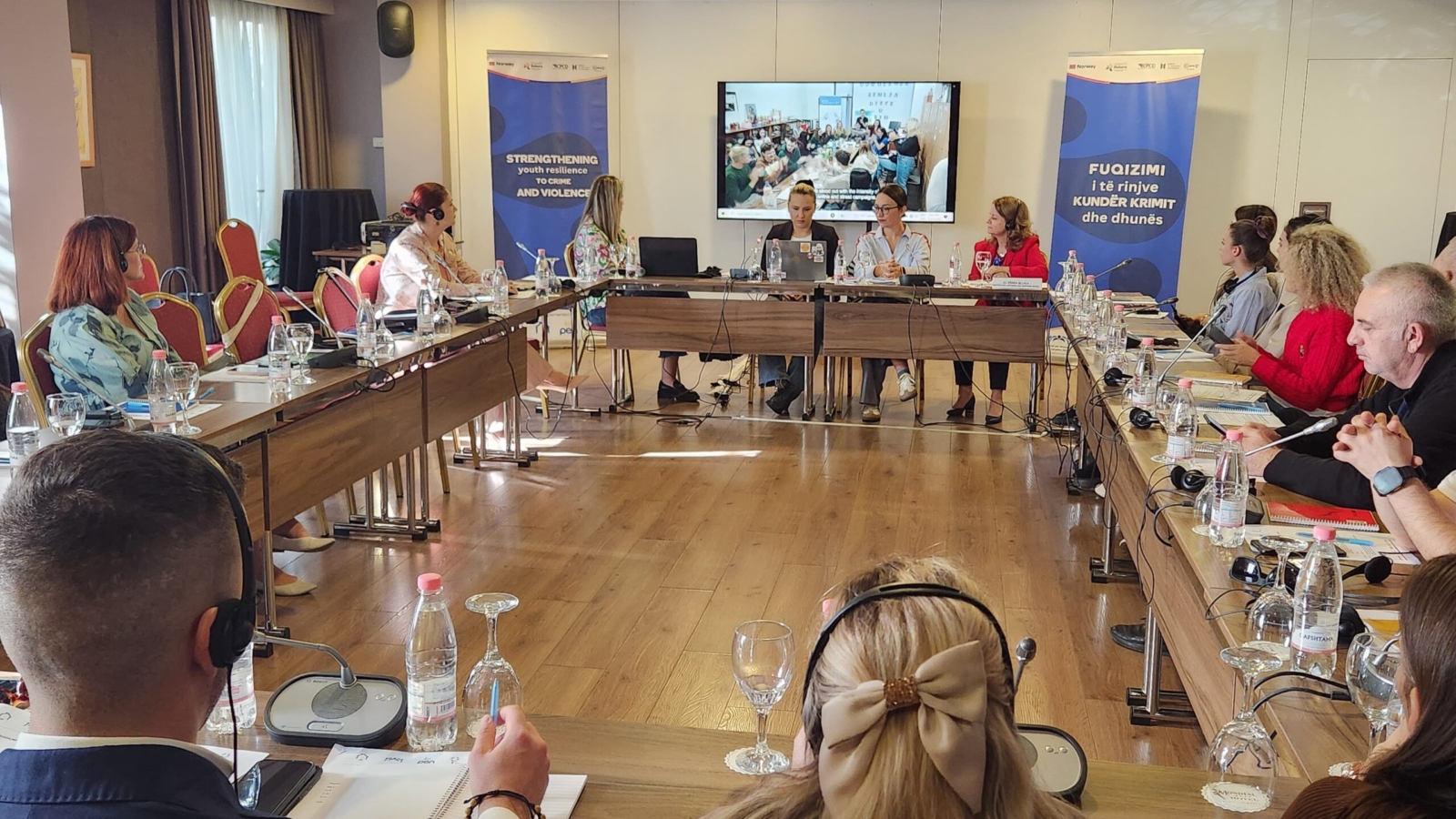Regional Forum – Smart Balkans
06-07 November 2024 | Tirana, Albania
Main goal of the Regional Forum was to examine and discuss the key factors which trigger and fuel violent radicalisation and extremism of youth.
CONCEPT
Rising sympathy of young people towards radical groups as well as obtrusive presence of intolerance in digital space becomes more and more disturbing especially in the context of current political discourse on migration, social rights or gender equality. At the same time we are witnessing that the values of human rights, tolerance and democracy are being challenged not only by young people but across our societies and even by public representatives and authorities.
Youth work is often challenged by the requirement to act preventively against the phenomenon and tries to find out what the key factors are and what the response should be. Public institutions on national, European and Global level have devoted their energy and resources into research of the causes of radicalization, preventive programmes, policy strategies and capacity building programmes for practitioners in youth work and education to prevent youngsters from being reached by violent extremist, paramilitary or terrorist groups.
It is understandable that for such a complex phenomenon we cannot expect a single theory on what the causes and key factors are or how should we approach it. IANS and its partners believe that there is already a huge experience to be shared by various stakeholders which needs to be reflected, evaluated or even confronted and questioned in open discussion. The Forum aimed to offer the platform to bring together diverse perspectives, opportunity to share the experience and search for further answers on how we could empower young people through youth work.
The event aimed to:
- Present and discuss current practices on prevention and resilience against violence and radicalization, prioritize values of young people;
- Share experience from youth work practice – good practice, problems and challenges from the field work.
- Discuss the current challenges and strategies of youth and education policy.
Bring together the experts, researchers, youth workers and policy makers to advance a dialogue and create synergies
PROGRAMME
The programme of the Regional Forum was structured around the following strands:
I. Analytical thinking and reflections on current contexts:
Perspectives on the concepts of extremism and radicalization: What do we understand by the very terms: violent extremism and radicalization? How flexible these terms became and in what context are they helpful for practice of youth work?
Radical youth in history: It might be argued that youth has always been and should be radical. How can we identify when the radical views uplift the society and when do they endanger it? How did the problem of violent extremism and radicalization evolved in the context of national and international politics? What lessons did/could we learn from history?
Causes and key factors of radicalization of youth: In order to strengthen preventive role of youth work, we need to understand what leads young people to identify with violent extremist and radical groups. What are the key factors influencing their choices, values and identities? What recommendations could research offer to youth policy makers and youth workers?
Current issues and future development: The radicalization of young people is just one part of more complex social reality. How does the social dynamics and current political developments influence young people in the context of radicalization? What are the challenges, which arise from the current political situation?
II. Youth Work:
Practitioners from the field of youth work have already taken the challenge of preventive work. There are already examples of good practice to be shared and lessons learned to be discussed. This event is an opportunity to participants to experience various methods, share the results of their activities and inspire each other through shared practices.
Prevention as a multi-stakeholders´ cooperation: How could we strengthen the cooperation of all stakeholders in community? What are the key elements and challenges we need to take into account?
Preventive strategies and methods in youth work: There are various methods and activities available for youth workers to develop tolerance, participation, discussion and conflict resolution. How can we work with young people who are at risk of being radicalized? How to communicate, leave the doors open for a dialogue and keep the safe environment at the same time?
Needs of youth and key competences for resilience: There are several concepts offering complex set of competences which we can work with (e.g. competences for democratic culture, global competences, intercultural competences). Do we understand them as complementary? How do we support them in everyday youth work? Is it possible to list the competences young people need to become resilient towards violent extremism?
III. Youth Policy
Youth policy shapers stand in front of the task to develop the strategies of prevention and initiate and support the tools of their implementation. Prevention of extremism is not the only task of youth work and its prioritization depends on the national contexts. Moreover, the youth policy doesn´t evolve in its own reality but needs to be approached from the multi-sectorial cooperation.
The role of youth work in de-radicalization and primary prevention: What approaches can we identify in prioritization of prevention as a role of youth work and to what extent do the professionals from the field of youth policy reach an agreement? What can we expect from national Youth Strategies and legislation? How such development impacts the local government in the partner countries?
From strategies to youth clubs: How do we ensure the evidence-based policies and the dialogue between practitioners, youth and policy makers? Is the public sector supportive enough?

Add a Comment